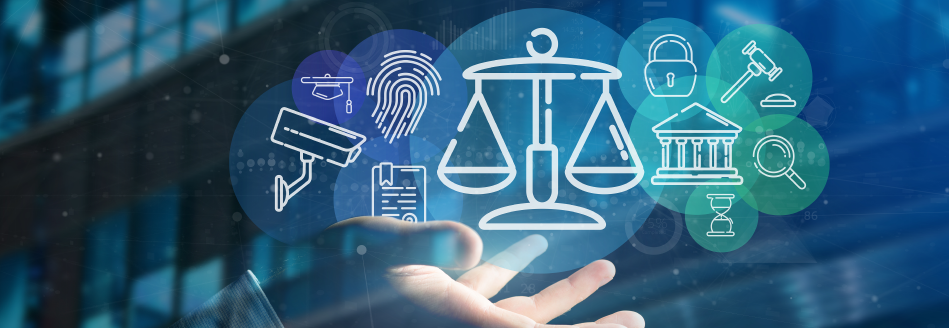What is Blockchain?
Blockchain is a technology that streamlines the backend systems, which is an inherent part of every business- it’s the foundation on which the system runs. The technology helps to make the AML process more efficient and cost-effective. The Blockchain framework is immutable as the data entries cannot be edited but can be appended within the system only. AML laws require monitoring of transactions, and this process can be strictly followed as the transactions cannot be masked and cannot avoid detection. Financial institutions can use Blockchain effectively and protect their reputation by detecting financial frauds early in the screening process.
AML software, when used in conjunction with Machine Learning, can immediately identify patterns in money laundering in the data. It can identify any suspicious activities in large volumes of data and be ahead of the innovative methods used by the criminals to launder their dirty money.
Evokes trust: Since the Blockchain platform is immutable, it creates trust among the users. They trust every transaction- every block of the chain of records. Moreover, banks can track the trail of transactions quickly and monitor financial transactions easily.
Automation: Blockchain automates the process of fraud detection with the help of built-in algorithms. The transactions are continuously monitored, and alerts for any suspicious activities are created, and therefore, financial institutions can stop such transactions, which might lead to money laundering. So, no suspicious transactions are missed, and the culprits can be identified immediately.
Blockchain-enabled KYC
Profile Creation: First, the user creates a profile- the users will register and make a digital profile on the Blockchain-enabled AML software. The users’ information and the proof of identity will have to be entered into the system.
KYC Documents: The user uploads KYC documents: the KYC data entries are verified using APIs after uploading the information. The data is encrypted in the Blockchain and cannot be manipulated. The data is stored on the FI server and not the Ledger.
KYC verification via KPIs After confirmation by the financial institutions, the information with a hash is uploaded to the server. Any changes made in the KYC will be reflected in the hash, and the platform will create the alerts. The technology will notify the change via alerts, and the authority will immediately get notifications.
AML checks: Regular checks monitor the customers’ financial activities, including the transactions – the amount being transacted, the frequency of the transactions, the source of money, any taxes or penalties levied, etc.
KYC monitoring: After the AML analysis, the system generates a risk score which analyses the risk level of the customer’s profile. The KYC monitoring process is also carried out accordingly. The frequency of the monitoring level is increased or decreased as per the risk score generated. When a bank or a financial institution has to verify the information provided by the customer, the user will provide access to the AML document. The bank will then compare the data with the hash associated with the particular records and know whether the data has been modified. It can ensure that it receives the same data validated by a financial institution earlier.
Conclusion About How Blockchain helps in AML Compliance
Blockchain streamlines the process of KYC, which is an integral part of the AML compliance process. AML UAE has an expert team to assist you in AML/ KYC compliance. Get in touch with us today and know how to use the latest technologies to improve the KYC process and comply with the AML rules and regulations.
Our recent blogs
side bar form
Add a comment
Share via :
FAQs
The blockchain process enables companies to detect financial fraud in the screening process. Since blockchain records information, it is difficult to change the records by hacking the system. Companies can use this feature of blockchain to secure their financial transactions from the possible risks of money laundering.
If the blockchain technology is used in AML KYC, you can create users’ profiles, upload relevant KYC documents and store them on the system. You can conduct regular checks to monitor customers’ financial transactions, generate a risk score for every customer, and monitor the customers frequently.
The best part about blockchain is that it streamlines the process of KYC. You can collect all information about customers and store it in the blockchain. Blockchain cannot be hacked, and hence, the data remains safe and secure. The platform creates alerts when changes are made to a user profile.
About the Author
Pathik Shah
FCA, CAMS, CISA, CS, DISA (ICAI), FAFP (ICAI)
Pathik is a Chartered Accountant with more than 25 years of experience in compliance management, Anti-Money Laundering, tax consultancy, risk management, accounting, system audits, IT consultancy, and digital marketing.
He has extensive knowledge of local and international Anti-Money Laundering rules and regulations. He helps companies with end-to-end AML compliance services, from understanding the AML business-specific risk to implementing the robust AML Compliance framework.






